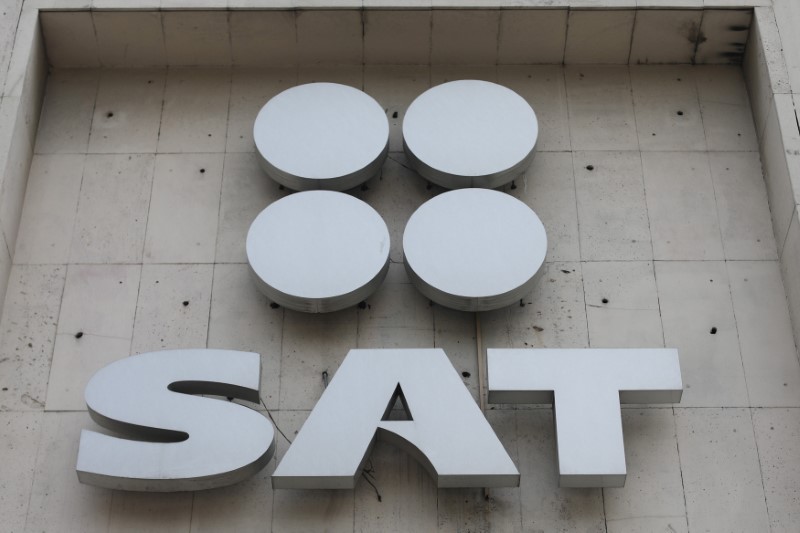By Alexandra Alper
MEXICO CITY(Reuters) - Top Mexican miners Grupo Mexico, Penoles , Fresnillo and billionaire Carlos Slim's Frisco together owe nearly $180 million in mining royalties to Mexico for 2015, according to preliminary government figures seen by Reuters.
The documents, which are part of an industry-wide review for tax compliance led by Mexico's tax authority, estimate Grupo Mexico (MX:GMEXICOB) owes some 1.7 billion pesos ($91.4 million) on a 7.5 percent mining royalty on extractive profits for 2015.
For the same levy, Penoles (MX:PENOLES) and Fresnillo (L:FRES), which belong to Grupo Bal, owe some 962.6 million pesos and 492.6 million pesos respectively, the figures show, while Frisco (MX:MFRISCOA1) owes some 189.1 million pesos.
Neither Frisco nor Penoles paid anything for 2015 for the mining royalty, while others' payments fell short of estimates, according to preliminary government accounts for the second year the levy was in force. Reuters could not determine whether the companies had received the government estimates. (Graphic: http://tmsnrt.rs/2rjQrij)
The review is the latest chapter in a stand-off between the government and the industry, whose production is worth about $13.5 billion annually and which critics accuse of profiting for years without paying their fair share, and part of a broader effort to boost the tax take as oil revenue falls.
"It doesn't surprise me...this has been a recurring situation in Mexico," said Patricia Legarreta, investigative coordinator at PODER, a non-governmental organization that seeks to boost corporate transparency in Latin America. "It's very important that (the companies) are audited," she added.
Government sources said the data did not necessarily mean companies had broken the law. Instead the review, launched last year, was aimed at determining whether royalty payments should be scrutinized further.
The data is based on a preliminary comparisons of tax returns and annual reports and includes tax credits that companies can offset against the payments.
The government scrutiny reflects further souring in the relationship between the industry, whose market value is estimated at $15.7 billion, and tax authorities since the new royalty came into effect in 2014.
More than 80 mining subsidiaries operating in Mexico, including units of Slim's Frisco, have launched legal challenges arguing the royalty is unconstitutional, according to documents seen by Reuters.
Tax officials could seek much heftier amounts as they review the sector for compliance on issues such as income tax, value added tax and other royalty payments, two people familiar with the matter told Reuters.
Mexico's tax authority SAT and Grupo Mexico declined to comment. Fresnillo said it fully complied with its tax and royalty obligations while Penoles cited a letter from Mexico's mining chamber rejecting allegations its members avoided taxes and questioned government calculations.
“We reiterate our disagreement with the figure. Penoles paid its mining royalties…according to the law and the money was even distributed to the towns, states and federal government.”
Frisco said in an emailed statement that two units had challenged the royalty in court and were subject to the "special" royalty but paid nothing by crediting other taxes against the levy as the law allows.
LAST STRAW
The royalty kicked in just as metal prices sank, sparking an outcry among miners which threatened to scrap investments.
"(The royalties) were the straw that broke the camel's back," said Mario Hernandez, a tax partner at KPMG.
The royalty was part of a broad tax overhaul aimed at boosting Mexico's tax take, the lowest among OECD countries as a percent of gross domestic product, and was combined with some additional levies on silver, gold and platinum revenues as well as stiffer penalties for not exploiting mines.
Eighty percent of the money brought by the levies was to be destined for a social fund for the villages and towns near mining sites, but the controversial royalty earned the government just over 2 billion pesos in 2015.
In an unprecedented move, Mexico's top auditor, ASF, published a report labeling units of Grupo Mexico, Fresnillo, Frisco and Penoles, as "alleged tax avoiders" in February.
Camimex, Mexico's mining chamber, said its members honored their tax obligations and expressed "worry" and "surprise" at the body's claims in a letter to ASF in March obtained by Reuters and referenced by Penoles.
Tax experts say the royalty law is riddled with loopholes, fueling dozens of legal challenges and restructurings that lowered tax payments.
For example, since investment in machinery and equipment is not deducted from income subject to the royalty, some Mexican miners created new units to "rent" equipment to their mining subsidiaries, because such costs are deductible.
According to public filings, between 2013 and 2014, Fresnillo created four new subsidiaries in Mexico dedicated to the leasing of mining equipment, while Frisco created two such units in 2013.
Neither company would comment on the restructurings.
A person familiar with the matter said Mexico's tax authority SAT has been reviewing these restructurings.
